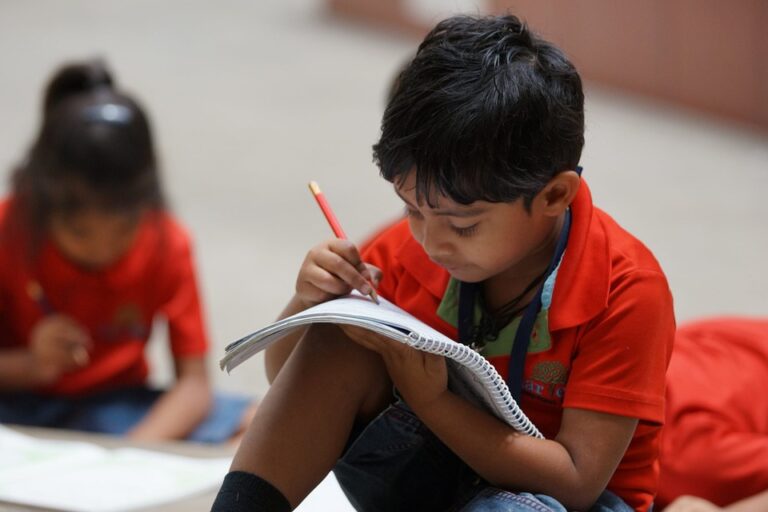Early Childhood Development: How To Foster A Nurturing Environment

Early childhood is a period of remarkable growth and development in a child’s life. From birth to around eight years, children undergo rapid physical, cognitive, emotional, and social changes. Understanding the importance of these formative years is crucial for parents, educators, and policymakers alike.
The Importance of Early Childhood Development
Early childhood development sets the stage for lifelong learning, behavior, and health. During this critical phase, the brain develops at an astonishing rate, forming the foundation for cognitive abilities, emotional skills, and social competence.
Research indicates that the experiences children have in their early years significantly impact their future success. Thus, investing time and resources in early childhood development can yield substantial benefits for individuals and society as a whole.
Key Areas of Early Childhood Development
Physical Development
Physical development in early childhood involves the growth and refinement of motor skills. Children move from reflexive actions to more coordinated movements as they explore their environments.
Fine motor skills, such as grasping and manipulating objects, and gross motor skills, like walking and jumping, are developed during this time. Encouraging play and physical activity is vital in promoting healthy physical growth.
Cognitive Development
Cognitive development refers to the emergence of the ability to think, understand, and learn. In early childhood, children develop memory, problem-solving skills, and language.
Engaging children in activities that stimulate their curiosity and encourage exploration, such as reading and interactive play, can enhance cognitive development. It is during these years that a child’s capacity for learning languages is at its peak.
Emotional and Social Development
Emotional and social development involves the formation of a child’s identity, relationships, and understanding of emotions. Children learn to express their feelings, develop empathy, and interact with others.
Positive interactions with caregivers and peers are crucial for building self-esteem and social skills. Teaching children to recognize and manage emotions helps them navigate social situations effectively.
Creating a Nurturing Environment
A nurturing environment is fundamental for optimal early childhood development. Here are some strategies to create such an environment:
Responsive and Supportive Caregiving
Responsive caregiving involves being attentive to a child’s needs and responding appropriately. This establishes a sense of security and trust, which is essential for emotional and social development. Supportive caregivers provide encouragement and guidance, helping children explore their world confidently.
Stimulating Learning Experiences
Children learn best through play and exploration. Providing a variety of engaging activities, such as arts and crafts, puzzles, and outdoor play, stimulates cognitive and physical development. Encouraging curiosity and creativity fosters a love for learning that can last a lifetime.
Safe and Healthy Environment
Ensuring a safe and healthy environment is crucial for physical well-being. Childproofing homes, providing nutritious meals, and ensuring regular health check-ups are essential aspects of caregiving. A healthy environment supports not only physical growth but also cognitive and emotional development.
The Role of Parents and Caregivers
Parents and caregivers play a pivotal role in early childhood development. Their interactions with children profoundly influence their growth and learning. Here are some ways caregivers can support development:
Engage in Meaningful Conversations
Talking to children, even before they can respond verbally, nurtures language development. Engaging in conversations about their interests and experiences enhances vocabulary and communication skills.
Model Positive Behavior
Children learn by observing adults. Demonstrating kindness, patience, and respect teaches children how to interact with others. Modeling positive behavior helps children develop social skills and emotional intelligence.
Encourage Independence
Allowing children to make choices and encouraging self-help skills fosters independence and confidence. Providing opportunities for decision-making and problem-solving helps children develop a sense of autonomy.
The Role of Education and Community
Beyond the family, the community and educational systems play a crucial role in supporting early childhood development. Access to quality early childhood education programs can significantly impact a child’s readiness for school and lifelong learning.
Quality Early Childhood Education
Early childhood education programs should focus on holistic development, encompassing cognitive, emotional, social, and physical growth. Trained educators who understand child development can create enriching learning experiences that prepare children for future academic success.
Community Support and Resources
Communities can support families by providing resources such as parenting classes, child care, and health services. Collaborative efforts between community organizations and families strengthen the support network for children, ensuring they receive the best possible start in life.
Conclusion
Early childhood development is a critical phase that shapes a child’s future. By understanding the key areas of development and creating a nurturing environment, parents, caregivers, educators, and communities can ensure children have the best possible foundation for lifelong success.
Investing in early childhood development is an investment in a brighter future for individuals and society, highlighting the immense value of these formative years.






